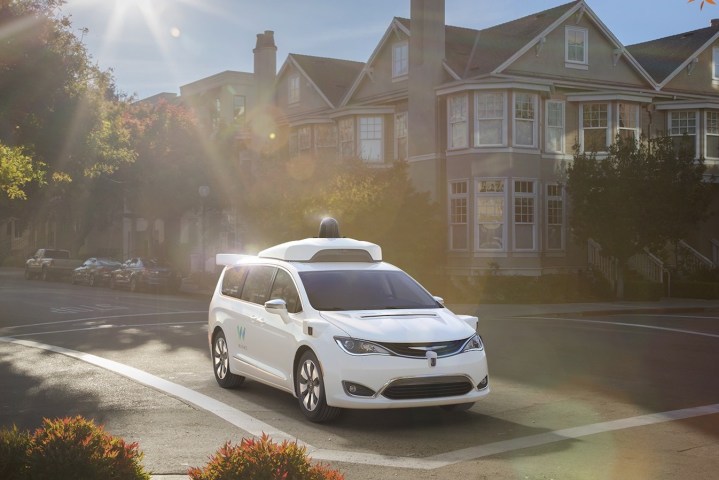Waymo’s autonomous-vehicle adventure really is going places.
The Alphabet-owned company announced on Thursday that it’s inked a deal with Fiat Chrysler Automobiles (FCA) to add 62,000 hybrid minivans to its existing fleet. That’s on top of the “thousands” of minivans it ordered in January. Yes, that’s a lot of new driverless vehicles, though Waymo doesn’t mention a time frame for delivery. It’s currently testing 600 of the driverless Chrysler Pacifica minivans on public roads across the U.S.
And if all that’s not enough to tickle your tailpipe, Waymo also revealed that it’s in discussions about the possibility of licensing its technology for an FCA-manufactured driverless vehicle for retail customers.

Let’s take a look first at the more immediate plan — to bring another 62,000 self-driving vehicles to the streets. A small percentage of them will be used as part of Waymo’s first full-fledged robot taxi service in Phoenix, Arizona, which could be up and running in the next 12 months. The rest? Waymo is expected to take the service beyond Phoenix once it’s been established there … but that’s still a lot of taxis, especially when you consider that it’s also ordered 20,000 all-electric Jaguar I-Pace SUVs for its autonomous fleet. It’s yet to reveal how and where it plans to deploy so many vehicles.
At the current time, Waymo is the only company among its many competitors that’s testing vehicles on public roads without anyone in the driver seat. As part of a trial leading up to its robot taxi service, the company has been offering selected folks in Arizona the chance to ride in its driverless cars — you can see what the experience looks like in a video released by Waymo earlier this year.
“Waymo’s goal from day one has been to build the world’s most experienced driver and give people access to self-driving technology that will make our roads safer,” Waymo CEO John Krafcik said in a release. “We’re excited to deepen our relationship with FCA that will support the launch of our driverless service, and explore future products that support Waymo’s mission.”
As for the plan to offer self-driving cars to consumers, it’s the first time Waymo has stated this so unequivocally as one of its goals. However, plenty of regulatory hurdles will still have to be overcome to reach this stage, especially considering the recent body blow suffered by the industry when a pedestrian was struck and killed by a self-driving Uber vehicle during testing in Tempe, Arizona, in March.
Speaking of Uber, it seems the ride-hailing giant could actually be cozying up with Waymo — surprising news considering Waymo and Uber rival Lyft are already in bed together, and even more so considering the two companies were only recently engaged in a courtroom battle over autonomous-car technology.
It’s certainly an exciting time in the self-driving space just now. With most of the major automakers and many of the big tech firms jostling for position in this increasingly competitive industry, developments are moving at speed toward a broad rollout of the technology in one form or another, in the beginning likely a robot taxi service along the lines of the one touted by Waymo and others.


